Rotary, Rotaract and Interact clubs across USA, UK, Sri Lanka and Taiwan demonstrate the impact of collaborative working.
Many people join Rotary to unite with likeminded people and take action to create lasting change locally and internationally. The same also extends to younger generations joining Interact, an opportunity for young people ages 12-18, and Rotaract, avaible for people ages 18 and older. For young people, being part of the Rotary network is a way to exchange ideas, develop leadership and professional skills and have fun through service.
The following two projects exemplify multi-national and multi-organisational collaborative efforts by both Interact and Rotaract clubs around the world. The first shows how a local club in Rotary Yorkshire Lincolnshire are collaborating with clubs in the USA and Sri Lanka. The second demonstrates how a Rotaract club in Taiwan has taken a unique business approach to support healthcare initiatives in the Himalayas. These stories highlight how people across generations, countries and organisations are working together to improve communities around the world.
Interact: Giving a helping hand one prosthetic at a time
Dr. Brent Hollers has been teaching robotics and STEM (science, technology, engineering and mathematics) related subjects for many years. After starting a robotics team at Sequoyah High in Canton, Georgia, USA, the group began working on a prosthetics project to learn new skills and do something positive for people and communities.
What started as a community outreach project has turned into an international collaboration effort–bringing together communities, students, professionals, Rotary and Interact clubs across three continents.
The Sequoyah High robotics team’s first projects focused on building prosthetics for adults building prosthetics for adults. Wanting his students to continue growing their skills and knowledge, Brent reached out to contacts in the robotics community to find other groups and organisations to partner with. He was introduced to the Rotary Club of Canton and learned about Interact which Brent believed held the same ideals as the robotic team.
The Sequoyah High School Interact Club was officially established, creating an international web of contacts and collaboration.
Speaking of his students, Brent describes their desire to create positive change in the world and how the prosthetics projects allow them to do just that.
“They have these grand ambitions of, ‘I want to solve poverty.’ ‘I want to solve hunger.’ Those kinds of things. And that’s amazing. And that’s great that their heart is there.
“But often at times, it's difficult to find an outlet where they can see the actual impact, right? And so that's where this type of programme connects the dots to me…You want to help people who are impoverished or who can't afford something or that need something to better their lives? Okay, well, this is something you can directly do. You can interact with those people, and you get to give them something that's life changing.”
Having started in 2018, King Edwards VI Grammar School (KEVIGS) Interact Club in Louth, Lincolnshire, UK was looking for Interact Clubs to partner with.
John Hodge from the Rotary Club of Louth which supports KEVIGS Interact, reached out to Rotary contacts in the US state of Georgia to see if they could help. For over 40 years the Rotary Club of Louth has maintained close relationships with Rotary Clubs across Georgia by sending local students to study in the USA through the Georgia Rotary Student Program
A link formed between the Sequoyah High Interact Club and robotics team with KEVIGS Interact. The American students sent KEVIGS a mechanical prosthetic hand set and shared their knowledge on making and assembling the device. The two groups met virtually throughout the COVID-19 worldwide pandemic, continuing to build technical skills and knowledge as well as mutual cultural understanding.
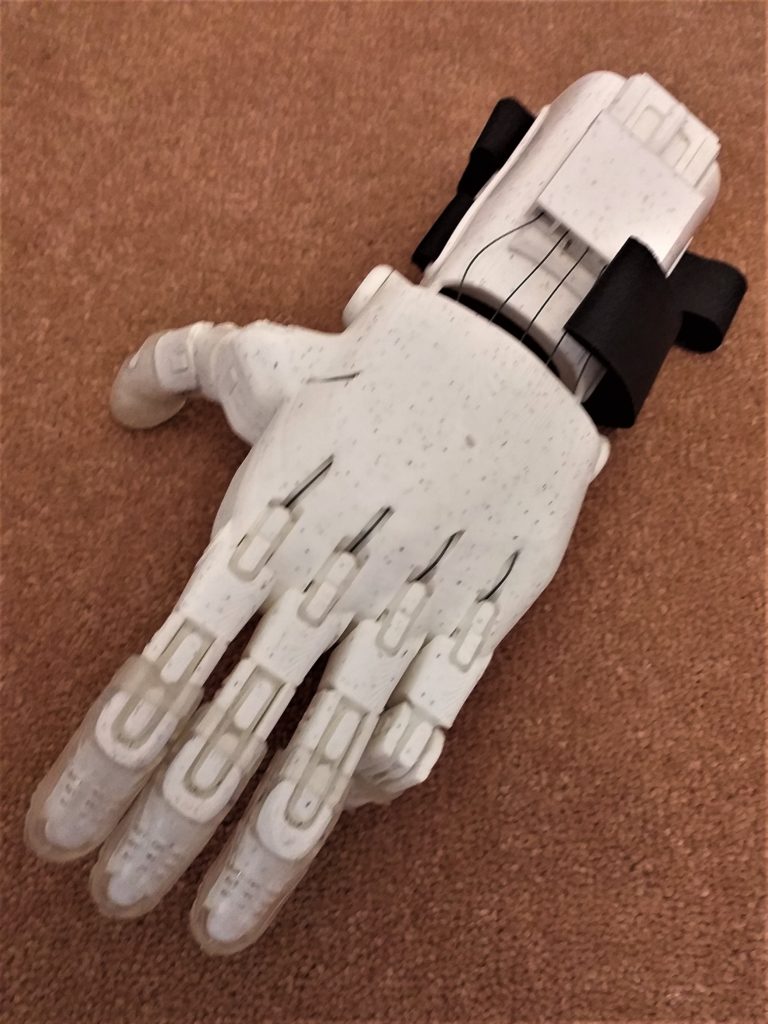
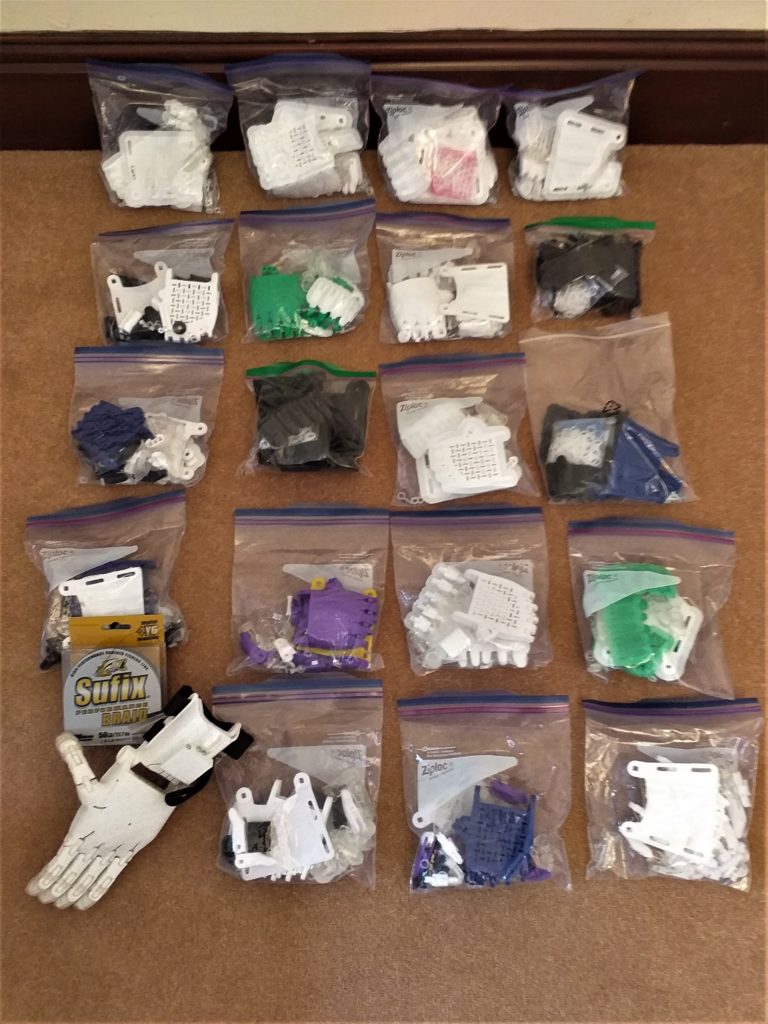
For their first joint project, the two clubs partnered with e-NABLE, an international network of volunteers using 3D printers to create hands and arms for people in need. They are currently working collaboratively to create a prosthetic hand for a young boy in India.
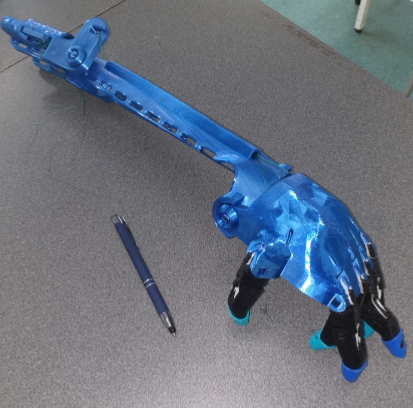
Moving forward, the clubs want to continue focusing on designing and building devices for children, as prosthetics can be inaccessible for many families around the world.
“These act as intermediate devices for them before you get a final product,” explains Brent. “They’re not something that someone would use for a lifetime. They're designed to kind of get them between devices because they're so expensive.”
John explains that the project is allowing the Interactors to experience international relationships, teaching them about modern design techniques, preparing them for high tech work and helping them develop knowledge sharing skills.
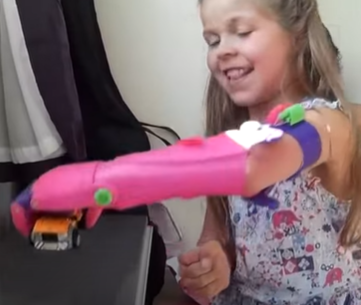
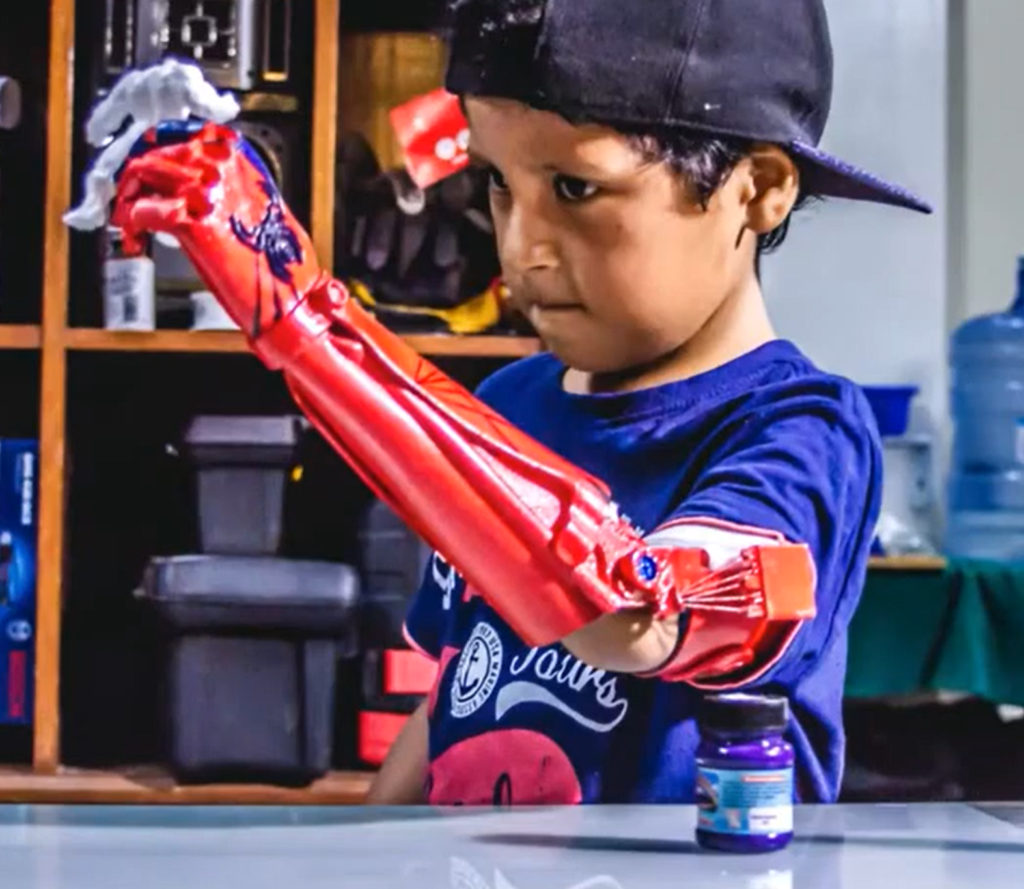
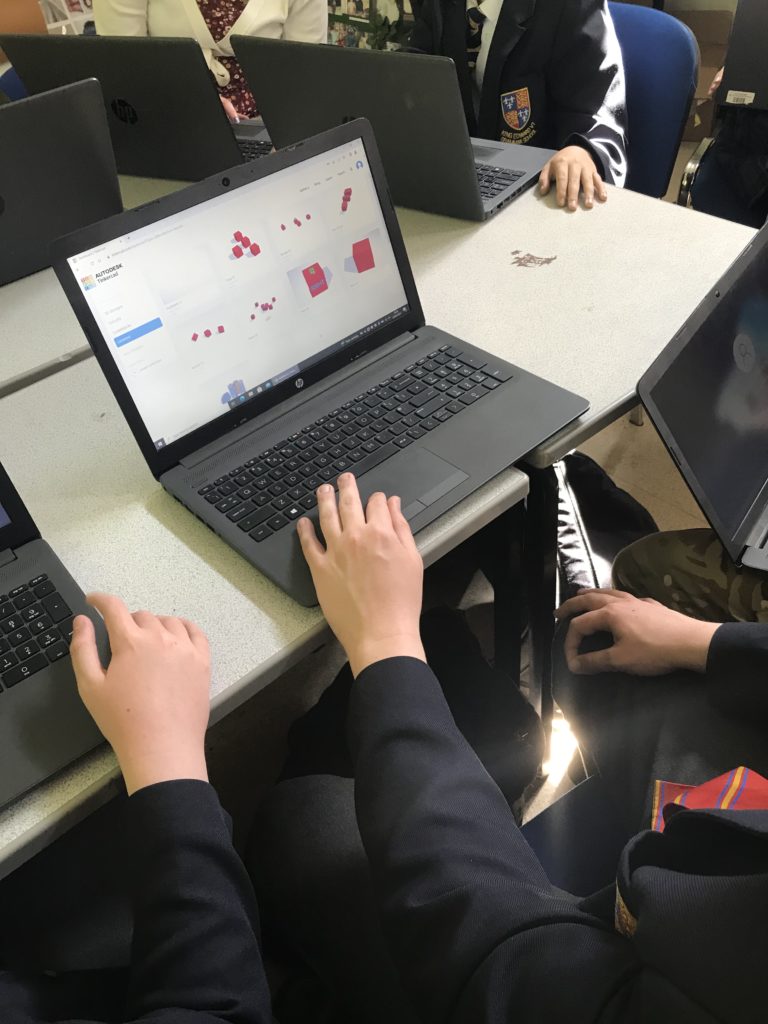
In 2022, the Inner Wheel Club of Louth reached out to the Centre for Handicapped (CFH) based in Kandy, Central Sri Lanka, to see if there was an opportunity to expand the Interactors’ prosthetics project.
The organisation provides free prosthetic and orthotic devices and rehabilitation services, and many other services, to people with various physical disabilities.
Amongst the organisation’s leadership team are Shamil Peiris, CFH’s chair and member of the Rotary Club of Kandy, and Mohan Rajendram, CFH’s general manager and Past President of the Rotary Club Katugastota.
Shamil and Mohan saw this project as an opportunity to get more much needed prosthetics into the community and foster relationships between Sri Lankan, American and UK Interact clubs.
Having sent examples of prosthetics to the CFH, it was agreed that Sequoyah High and KEVIGS Interact students would work on a field trial to build partial hand prosthetics. The project will benefit three children from rural areas who may not otherwise have the opportunity to access a prosthetic.
Mohan explains that there is often a stigma in more rural areas of Sri Lanka around the usage of prosthetics. It’s important that the prosthetics not only help provide basic functions, for example holding a cup or moving an object, but also it must look as natural as they can. For this reason, they are working on providing silicone covers to match the skin tone of its user.
Mohan and Shamil’s interest in the project extends further than just the prosthetics. “We were quite interested, because we were looking at the wider picture–the wider picture of getting kids in the UK, linked up here with the handicapped and trying to link them to kids who are handicapped,” says Shamil.
There are nearly 30 Interact Clubs in and around Kandy with the Rotary Club of Kandy alone sponsoring 22 of them. Interactors in Kandy have previously worked and developed lasting friendships with clubs in Singapore and India. Building on that, Shamil and Mohan see this prosthetics project as an ideal opportunity to create cross-cultural links between Interactors across the various continents.
“We are very keen to sort of promote that because those friendships will last long after the project is over,” says Shamil.
The new academic year will bring new opportunities as well to the project and the future of prosthetic devices.
Louth Rotary and KEVIGS are in dialogue about investing in a 3D printer and so have a manufacturing based for prosthetics in Louth. This will allow students to design and print their own devices and continue to grow their own knowledge and skills.
Having secured promotion and now left Sequoyah High School, Brent will be teaching at St Mary’s Academy in Fayetteville, Georgia. The school has a carbon fibre printer which can build stronger, more durable devices. They will also be getting a brain-controlled prosthetic which will serve as a model for future, more permanent devices.
“Our goal is to make devices that can actually be final end-use devices that are mechanised with motors that basically the brain controls,” says Brent.
He’s also motivated to support his new students to build international partnerships and plans are in place to start an Interact Club at St Mary’s Academy.
There’s an open invitation for more Rotary and Interact clubs to get involved.
“It's by no means a closed project. It's something that we want to grow,” says Brent. “It doesn’t matter where you are in the world, we’ll get you engaged and involved.”
Rotaract: Linking business with charity to support healthcare in the Himalayas
In August 2019, a group of monks gathered in the Pullahari Monastery on the outskirts of Kathmandu in Nepal for the Health Caretaker Training Camp. Among the trainers and group leaders were four Rotaract members from Taipei, Taiwan.
Rotaract Club of Taipei Past President Tina Chung, a dentist by profession, led the club’s collaboration with Taiwan Health Corps, a group of students and professionals uniting to improve global healthcare.
The goal of the training was to give monks a basic medical health education and encourage the monasteries to use that knowledge to build a continuing healthcare programme for local people.
One of the Rotaractors helping with the training was Past President and current social media chair, Eric Lu. He explains that there is little access to hospitals for many people across the Himalayas, so they often go to monasteries for medical support. It’s also important that local people, such as the monks, can support other local people, especially after natural disasters such as earthquakes when medical support may be even harder to come across.
“So, what we do is try to cultivate the knowledge amongst local people and equip them with the basic knowledge about medical management,” says Eric.
The monks were given training on how to identify and deal with basic medical conditions, and they learned what non-prescription medications to use in different scenarios. Some of the monks received more advanced training to deal with more serious issues such as broken bones.
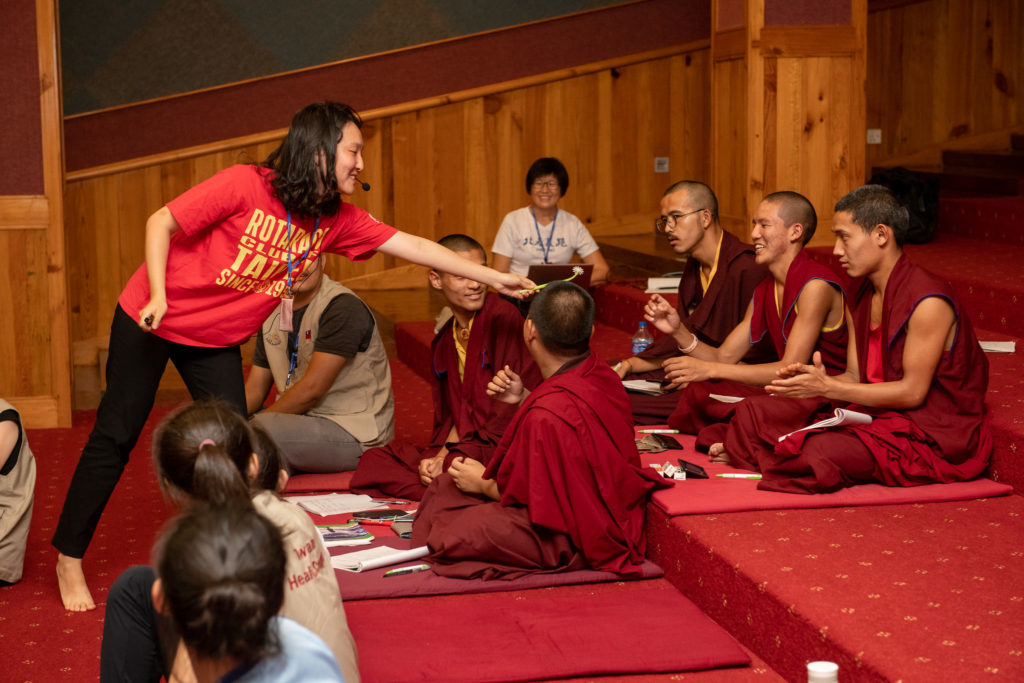
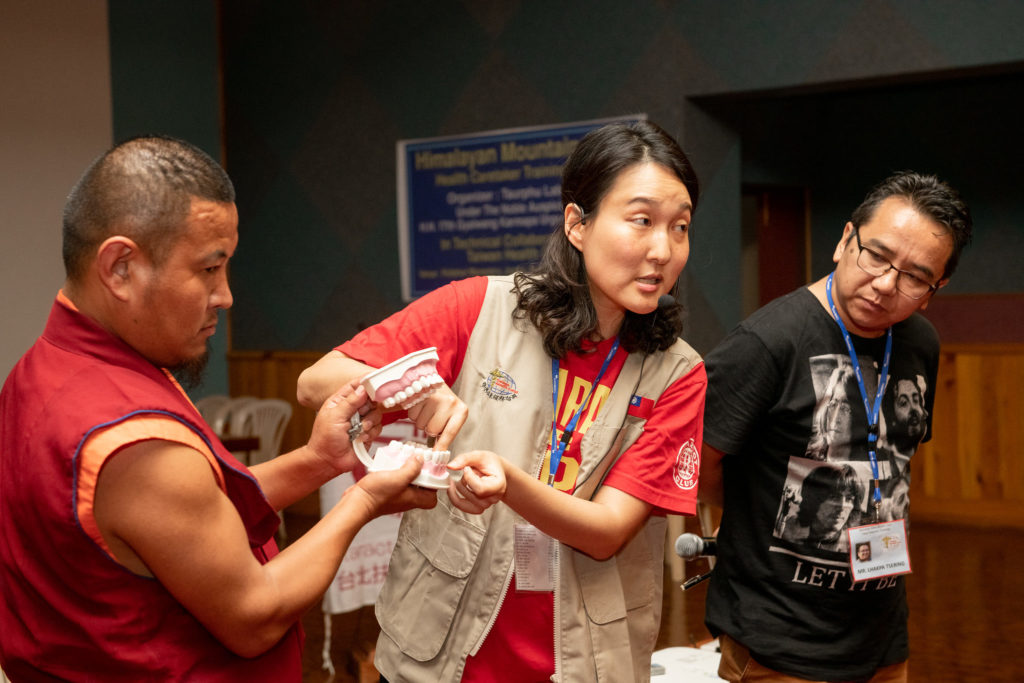
“After we finished in Nepal, we thought about if we can do more, we didn't want to just simply go there and do something once,” says Eric.
They learned that access to automated external defibrillators, known commonly as defibrillators or AEDs, was low across the Himalayas. According to St John Ambulance in the UK, defibrillators can cost anywhere between £800 and £2,500, making them financially inaccessible to many communities. Rotaract Club of Taipei once again joined Taiwan Health Corps efforts, this time to raise money for defibrillators for the monasteries.
The Rotaract Club of Taipei is one of hundreds of clubs on the island, but only one of three English speaking Rotaract clubs in all of Taiwan. Though the majority of members are Taiwanese, they often attract exchange students and different types of professionals from other continents, making the club culturally diverse. This diversity means that they often approach projects using skills from their various professions and cultural backgrounds.
Rather than ask for donations, the club decided to take a business approach to fundraising as several members had experience and interest in creative business practices. They partnered with Trust Café, a local Taipei business incubator dedicated to cultivating “innovative thinking ability” and “entrepreneurial spirit” amongst young people, all with the mission of creating positive value for the world.
Together, the Trust Café and the Rotaract Club of Taipei were able to create branded bags of coffee beans with information about the club and the defibrillator project.
“You can try to persuade a person to donate the money once, but after a second time or third time, people get tired,” says Eric. “But what if I say, we’ll give you coffee beans in return? Then they will probably think that sounds cool.”
Taipei Rotaractors presented the project and their branded goods to Rotary Clubs as well public and private organisations. One third of the gross profit from each sale was then donated to the project, allowing the club to purchase two defibrillators. Past President Tina returned with Taiwan Health Corps to deliver the defibrillators and support the monks in their training to use them.
Reflecting on the project, Eric is proud of what the group was able to achieve by collaborating with other organisations and taking a more innovative business-minded approach to fundraising.
The club consistently reinforces the idea that failure is welcome and necessary for growth and learning. They actively push each other to take different approaches to real problems facing local and international communities, and they value the learning that comes from it.
“This is the reason why we need Rotaractors,” he says. “We have more time, and we are younger, so we are more willing to make mistakes.”
The club is currently focused on helping homeless Taipei residents. They are actively working with the people affected as well as partnering with local organisations and government councils to find appropriate solutions.
Opportunities within the Rotary worldwide family
Cross generational, cultural, continental and organisational projects are benefiting everyone involved. For younger people, Interact and Rotaract are ways to develop skills, meet new people, build community and participate in meaningful service. Together at Rotary, we see a world where people unite and take action to create lasting change: across the globe, in our communities and in ourselves.
Thank you to Rotarian Rebecca Mendoza, a freelancer from York Rotary, who wrote this article as part of a trail commercial partnership with Rotary International District 1040. Home / Rebecca A Mendoza